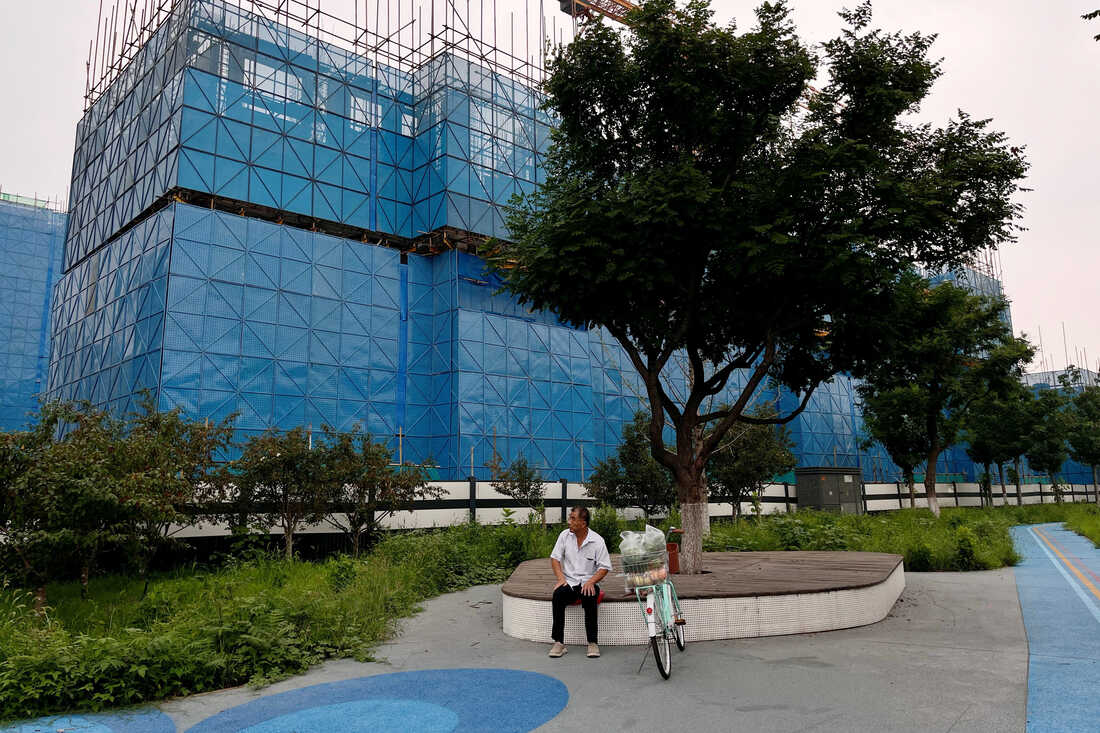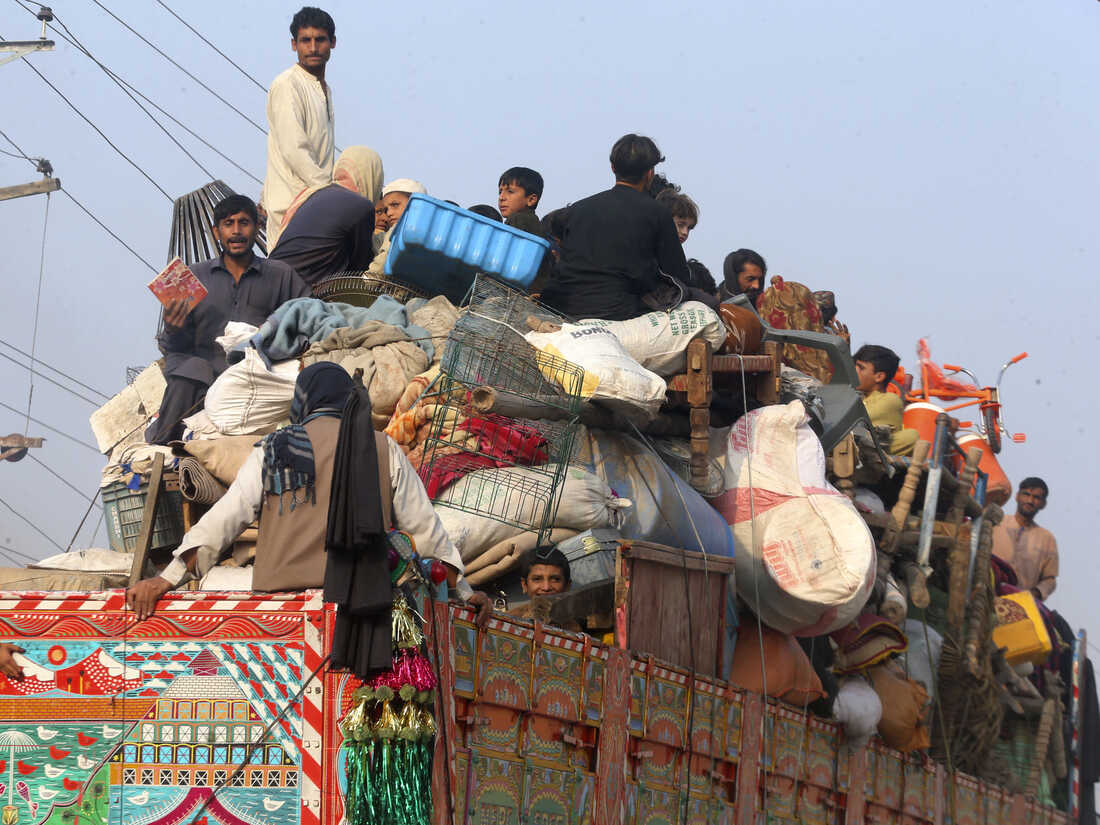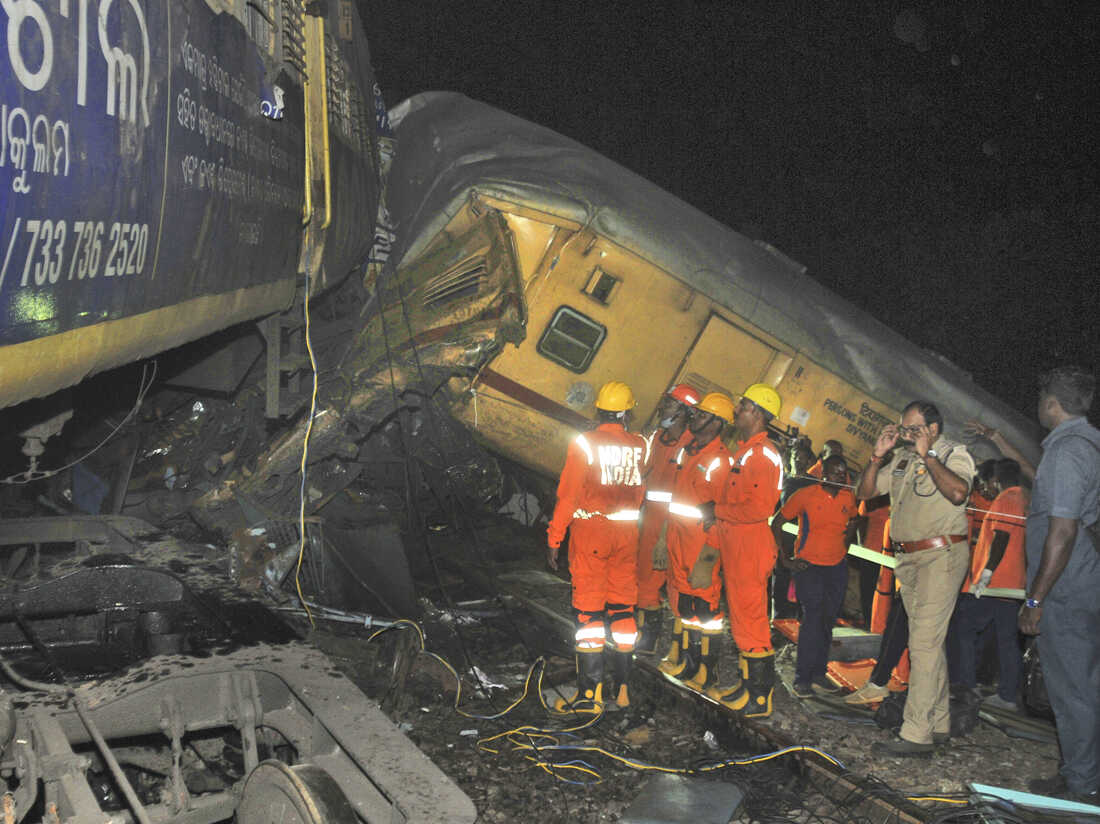China's economic woes keep getting worse. Here's why
By Vincent Ni
A person sits near a construction site of residential buildings by Chinese developer Country Garden, in Beijing, Aug. 11. Country Garden is facing major financial challenges. Tingshu Wang/Reuters hide caption
toggle caption Tingshu Wang/ReutersA person sits near a construction site of residential buildings by Chinese developer Country Garden, in Beijing, Aug. 11. Country Garden is facing major financial challenges.
Tingshu Wang/ReutersAfter three years of strict "zero-COVID" lockdowns, analysts had expected China's economy to quickly recover this year. But recent sets of data suggest otherwise. Retail sales, industrial output and investment in July all grew at a slower-than-expected pace. In the meantime, a fall in aggregate demand has put on the world's second-largest economy.

Tao Wang is currently a managing director and chief China economist at UBS in Hong Kong. Tao Wang hide caption
toggle caption Tao WangHow concerned should the United States be about the Chinese economy? How much have Beijing's policies contributed to woes in, for example, its property sector? Chinese policy makers were once known for being pragmatic, but can the pragmatism continue in the current political climate in Beijing?
NPR spoke to Tao Wang, author of the book, . She's a former economist at the International Monetary Fund and is currently a managing director and chief China economist at UBS in Hong Kong.
is about 300% and rising, which is the highest among emerging markets and higher than most advanced economies as well. While China's central government debt is relatively small at just above 20% of GDP, debt at the local government level is estimated to be more than 70% of GDP. Moreover, many local governments do not have enough cash flow to pay interest on their debt. Some parts of the corporate sector, especially the property developers, are also now facing severe challenges to service their debt given the deep property slump.Despite the high and rising debt level, we think the risk of a "typical" debt crisis or financial crisis where large defaults cause bank failures, severe credit crunch, and/or sharp exchange rate depreciation is relatively small in China.
Why?
One factor is that China's government has substantial assets that can be disposed of to help pay debt. More importantly, a debt crisis is typically a liquidity crisis, and in the case of China, high domestic saving kept by capital controls at domestic banks means that more than 95% of China's debt is domestic debt, financed by relatively stable domestic deposits and not subject to sentiment change of international investors. State ownership of the banks and the government's guarantees on deposits and track record also make bank runs highly unlikely. State ownership also means the government can prevent banks from withdrawing credit or otherwise causing a credit crunch. Meanwhile, the government can also inject capital or liquidity to support the operation of the banking system, and can coordinate relatively orderly debt restructuring, as opposed to market-enforced deleveraging, which can be messy and overshoot.
This does not mean China's high and rising debt level is not problematic. Evidence suggests that debt has been consistently rising faster than output over a prolonged period and a growing share is allocated to nonproductive sectors. Without market discipline to clear the low returns or failures of investment, inefficient and wasteful investments will crowd out more productive and profitable ones. This means misallocation of resources, depressed corporate profitability and investment, and lower long-term growth. The wasted resources will eventually end up as nonperforming debt, the cost of which will have to be borne by the financial sector and, ultimately, savers.
Your book tells a story of how China managed its economy since 1978. Now that the economy is at a crossroads again, what past lessons should China's leaders learn when they think about what's next?
China's economy is now facing significant challenges, with both the external environment and China's own economic fundamentals having changed. China's leaders can learn from their own experiences of navigating challenges in the past.
First, stay pragmatic and adaptive as they did in the past, adjusting policy priorities and tools in response to new challenges and changed circumstances.
Second, stay open and open further to the outside world — international trade, foreign investment, exchange of people and ideas, best international standards and practices have benefited China's development tremendously and are still important.
Third, push through key reforms and maintain the market-orientation — they were key to propel China's rapid development since 1978. Facing new challenges, China now needs to push forward with SOE [state-owned enterprises] reforms, [household registration system] and pension reforms, supporting the private sector and revamping the fiscal system, to name a few.



